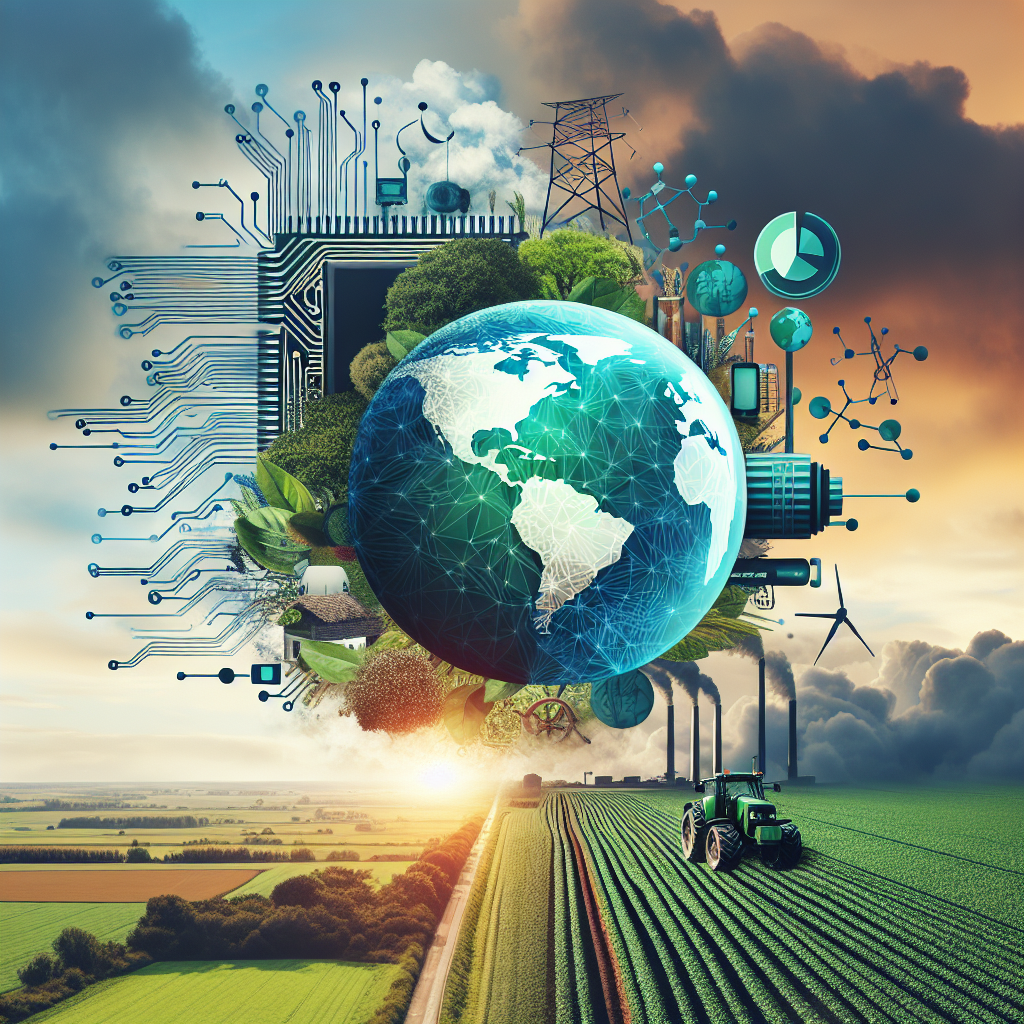AI-Powered Solutions for Climate Adaptation in Agriculture
Climate change is one of the biggest challenges facing the world today, and its impact on agriculture is profound. Extreme weather events, unpredictable rainfall patterns, and rising temperatures are all posing a threat to global food security. In order to adapt to these changing conditions, farmers need innovative solutions that can help them mitigate the effects of climate change on their crops. This is where artificial intelligence (AI) comes in.
AI-powered solutions are revolutionizing the way agriculture is practiced, offering farmers the tools they need to make more informed decisions and improve the resilience of their crops to climate change. From predictive analytics to precision farming, AI technologies are helping farmers adapt to the challenges of a changing climate.
One of the key ways in which AI is being used in agriculture is through predictive analytics. By analyzing historical weather data, soil conditions, and crop performance, AI algorithms can predict future climate patterns and help farmers make more informed decisions about when to plant, irrigate, and harvest their crops. This can help farmers optimize their yields and reduce the risk of crop failure due to extreme weather events.
Another important application of AI in agriculture is precision farming. By using sensors, drones, and other technologies to collect data on soil moisture, nutrient levels, and crop health, farmers can make more targeted decisions about how to manage their fields. For example, AI-powered drones can be used to monitor crop health and detect early signs of disease or pest infestations, allowing farmers to take action before the problem becomes widespread. This can help farmers reduce the use of chemical pesticides and fertilizers, leading to more sustainable and environmentally friendly farming practices.
AI technologies are also being used to improve irrigation efficiency in agriculture. By analyzing soil moisture levels and weather forecasts, AI algorithms can help farmers optimize their irrigation schedules and reduce water waste. This is particularly important in regions facing water scarcity due to climate change, where efficient water management is essential for sustainable agriculture.
In addition to these applications, AI is also being used to develop climate-resilient crop varieties. By analyzing genetic data and breeding techniques, AI algorithms can help scientists develop crops that are more resistant to heat, drought, and pests. This can help farmers adapt to the changing climate and ensure food security for future generations.
Overall, AI-powered solutions are playing a crucial role in helping farmers adapt to the challenges of climate change in agriculture. By providing farmers with the tools they need to make more informed decisions and optimize their farming practices, AI technologies are helping to improve the resilience of crops to extreme weather events and ensure food security for a growing global population.
FAQs
Q: How can AI help farmers adapt to climate change in agriculture?
A: AI can help farmers adapt to climate change by providing them with tools to make more informed decisions about when to plant, irrigate, and harvest their crops. By analyzing weather data, soil conditions, and crop performance, AI algorithms can help farmers optimize their yields and reduce the risk of crop failure due to extreme weather events.
Q: What are some examples of AI-powered solutions for climate adaptation in agriculture?
A: Some examples of AI-powered solutions for climate adaptation in agriculture include predictive analytics, precision farming, and climate-resilient crop breeding. These technologies can help farmers improve their farming practices, reduce water waste, and develop crops that are more resistant to heat, drought, and pests.
Q: How can AI improve irrigation efficiency in agriculture?
A: AI can improve irrigation efficiency in agriculture by analyzing soil moisture levels and weather forecasts to help farmers optimize their irrigation schedules. By using AI algorithms to make more targeted decisions about when and how much to water their crops, farmers can reduce water waste and improve water management practices.
Q: What are the benefits of using AI in agriculture for climate adaptation?
A: The benefits of using AI in agriculture for climate adaptation include increased yields, reduced risk of crop failure, improved water management, and more sustainable farming practices. By providing farmers with the tools they need to adapt to the challenges of climate change, AI technologies can help ensure food security for a growing global population.

